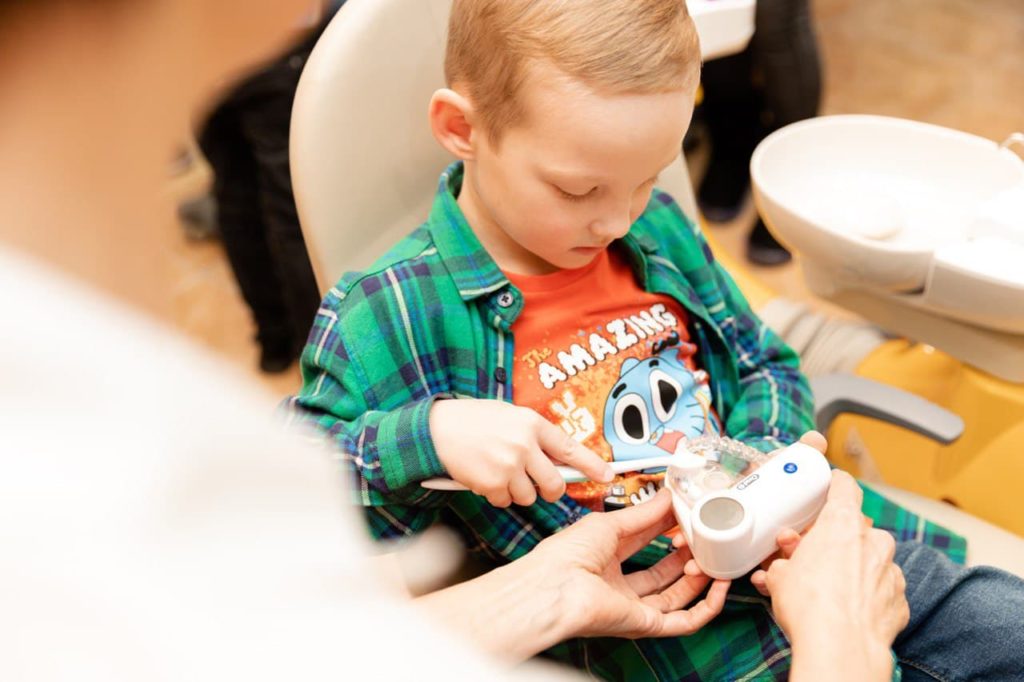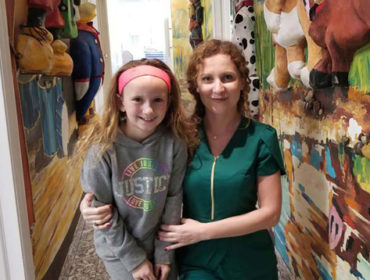My Child’s First Visit
What can you and your child expect during the first visit?
It is important to schedule your child’s dentist visit earlier in the day, when they are well-rested and less likely to be fussy. Also, if possible, it is best not to bring other children along on the first visit. Bring your child’s favorite toy, blanket or other familiar object to help your child know that the dentist office is a safe and comfortable place for him or her.
If your child is under 3, we ask that you accompany him or her to the treatment room. Depending on his or her age and comfort level, we will have your child sit in your lap or you may sit by your child’s side.
First, Dr. Krepkh will review your child’s history and answer any questions or concerns you may have. She will count your child’s teeth, gently examine them for signs of possible tooth decay, look at your child’s gums to make sure they look healthy, and will examine your child’s bite. Dr. Krepkh will show you and your child how to care for their developing teeth in a fun and informative way and will offer advice about preventing future cavities through home care. Dr. Krepkh will gently clean the teeth and assess your child’s need for fluoride. She will also go over oral health care basics, discuss developmental issues and answer any additional questions.
How often should my child see Dr. Krepkh ?
Dr. Krepkh would like to see your child every 6 months to build up your child’s confidence and comfort level in visiting the dentist, to monitor the development of his/her teeth, and to promptly treat any developing problems.
Why should your child visit the dentist so early?
Healthy baby teeth will result in healthy permanent teeth and a lasting, beautiful smile. Also, baby teeth affect the way your child speaks and eats. Bringing your child at an early age , will help to build a trusting, friendly relationship with Dr. Krepkh. Also, as a parent, you can come to learn the importance of oral hygiene, the relationship of nutrition to dental health, cavity prevention, the importance of fluoride, and all the other components that contribute to keeping your child’s teeth healthy and strong.










